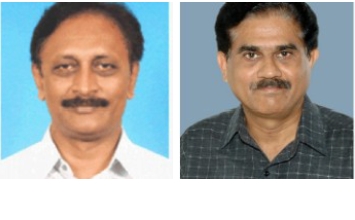

Recently, the General Economics Division (GED) of the Bangladesh Planning Commission, in collaboration with the Asian Development Bank (ADB), jointly organized the International Conference titled "Ocean Prosperity: Catalyzing Blue Economy in Bangladesh" at the Bangabandhu International Conference Center (BICC) in Dhaka. At this prestigious event, Dr. S. Sateesh Chandra Shenoi delivered a keynote speech during the plenary session. Dr. Shenoi served as the director of the Indian National Center for Ocean Information Services (INCOIS) from 2009 to 2020. Established in 1998 under the Ministry of Earth Sciences (MoES), INCOIS operates as an autonomous body and is a pivotal unit of the Earth System Science Organization (ESSO), situated in Pragathi Nagar, Hyderabad, India.Also presented keynote speaker at one of the breakout sessions titled “Sustainable Blue Production” was Dr. Ramaiah Nagappa, a distinguished biological oceanographer who has served as the chief scientist at the CSIR – National Institute of Oceanography, GOA. The exclusive interview with these esteemed guests was conducted by Rafid Fayyaz, the Correspondent of The Bangladesh Today and is presented below.Interviewer: Dr. S.S.C. Shenoi, we are grateful that you traveled from India to attend our conference. Could you please share your thoughts on the event and your experience here?Dr. S.S.C. Shenoi: Thank you. It was my pleasure to be part of this international conference. I was very glad to accept the invitation and join here. Firstly, I observed that numerous activities are being carried out in Bangladesh through various agencies and institutions, which is a very positive development. Secondly, the organization was excellent. What impressed me the most was the presence of scientists, bureaucrats, and political representatives in every session. This combination is very beneficial, as it provides the right perspective for planning and policy-making, allowing scientists to convey their ideas directly to those in positions of power.Interviewer: Do you have any recommendations or suggestions for such events that we might organize in the future?Dr. S.S.C. Shenoi: There is always room for improvement, but I believe the current direction is promising. The students are very enthusiastic and eager to learn new techniques and methodologies. Increasing exposure to experts from other countries through talks and interactions would be beneficial. When I was a student in India, we also eagerly awaited interactions with Western experts, which were very inspiring.Interviewer:You were the director of INCOIS. Currently, INCOIS conducts multiple workshops attended by students from different countries, but only a few students from Bangladesh can participate. How can we enhance collaboration in the future to enable more Bangladeshi students to attend these workshops, given the large number of students interested?Dr. S.S.C. Shenoi:INCOIS has a training center that I established around 2013, which includes a dedicated office space for regular training courses. These courses focus on translating oceanographic research into practical applications for various stakeholders such as fishermen, navigators, and industry professionals. INCOIS is one of the leading organizations in ocean data collection and is part of a global initiative, utilizing Argo floats for data gathering. In terms of tsunami early warnings, we are among the best in the world. We are also exploring the use of artificial intelligence to predict ocean behaviors. To enhance collaboration, establishing MOUs for joint research and implementing exchange programs that allow students to stay longer and learn these advanced techniques would be particularly beneficial.Interviewer: Thank you, Dr. Shenoi. Do you have any final suggestions or recommendations for our students to become better researchers?Dr. S.S.C. Shenoi: I hope for more interactions between India and Bangladesh, especially in the field of Marine Science, which will benefit both countries.Interviewer:Thank you very much, Sir. We also look forward to further collaboration and would be delighted to welcome you as guest in the future. Dr. Ramaiah Nagappa, please share your thoughts on today's event? Also, having taught students at the Department of Oceanography, University of Dhaka, what has been your experience like teaching here, and what suggestions would you give to the students?Dr. Ramaiah Nagappa: Thank you for the question. As a teacher at Dhaka University in 2015 and again in 2023, I have greatly enjoyed teaching here. The students are very bright and have immense potential to improve the nation's economic growth through the Blue Economy. In my talk today, I emphasized the importance of utilizing water resources to increase the income of marginalized and poor fishermen. I hope the government recognizes the need to support these communities. For instance, a fisherman earns only about 300 Taka per day, totaling approximately 1,100 USD annually, which is very low. I am willing to assist students and the community in improving biological productivity through aquaculture and water management.Considering solely the low-lying Padma region, there is substantial potential to increase fish production over the next decade.Thank you very much.Interviewer: Thank you very much for your time, Dr. Nagappa.
